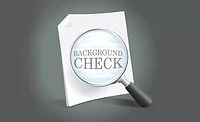More Than 1 in 4 Employers Do Not Conduct Background Checks of New Employees
According to a CareerBuilder survey, 75 percent of employers said they have hired the wrong person for a position, and of those who had a bad hire affect their business in the last year, one bad hire costs them nearly $17,000 on average. And while most employers (72 percent) background check every new employee before they are hired, more than 1 in 4 (28 percent) do not.
"If an employee isn't well-suited for the job or has a bad attitude, the time they spend not working could significantly impact your bottom line. That's why it's so important to make sure qualifications are substantiated," said Ben Goldberg, CEO of Aurico, a CareerBuilder company. "It's a hard cost to quantify, but it adds up when you consider the loss of employee morale, the additional supervision that employee needs, productivity loss for the organization, revenue that's not being generated and client relationships that could be turning sour as a result of bad impressions."
The national study was conducted online by Harris Poll on behalf of CareerBuilder from August 11 to September 7, 2016 and included a sample of 2,379 hiring managers and human resources professionals across industries and company sizes in the private sector.
The majority of employers (72 percent) background check every new employee before they're hired, but more than a quarter (28 percent) don't at all. Similarly, while many (55 percent) drug test employees, only one in five (20 percent) continue to once an employee has been hired.
"As you are hiring candidates who represent you and act as an extension of your company, accurate and thorough background checks are vital. Especially because the cost of replacing an experienced worker who doesn't work out can cost a decent amount of that individual's salary," Goldberg said.
Those who do background check are analyzing these aspects:
- Criminal background: 82 percent
- Confirm employment: 62 percent
- Confirm identity: 60 percent
- Confirm education: 50 percent
- Check for illegal drug use: 44 percent
- Check licensing: 38 percent
- Credit check: 29 percent
The Cost of a Bad Hire
Among those who had a bad hire, 37 percent said it was because the candidate lied about his/her qualifications. The price of a bad hire like this adds up in a variety of ways. The most common ways employers say a bad hire affected their business in the last year are:
- Less productivity: 36 percent
- Compromised quality of work: 33 percent
- Affected employee morale negatively: 31 percent
- Lost time to recruit and train another worker: 30 percent
- Cost to recruit and train another worker: 30 percent
- Employee's managers or coworkers had to spend excessive time assisting bad hire: 29 percent
Of those who have had a bad hire affect their business in the last year, the average cost of a bad hire varies by company size:
- 500 or less employees: $11,000
- More than 500 employees: $22,000
- More than 1,000 employees: $24,000
When classifying what makes someone a bad hire, employers reported several behavioral and performance-related issues:
- The employee didn't produce the proper quality of work: 58 percent
- The employee had a negative attitude: 52 percent
- The employee didn't work well with other employees: 51 percent
- The employee's skills did not match what they claimed to be able to do when hired: 49 percent
- The employee had immediate attendance problems: 45 percent
- Customers complained about the employee: 38 percent
A fifth of employers who have made a bad hire (20 percent) say they know within the first week of hiring a candidate whether or not they made a mistake, and more than half (53 percent) know within the first three weeks.
Looking for a reprint of this article?
From high-res PDFs to custom plaques, order your copy today!





